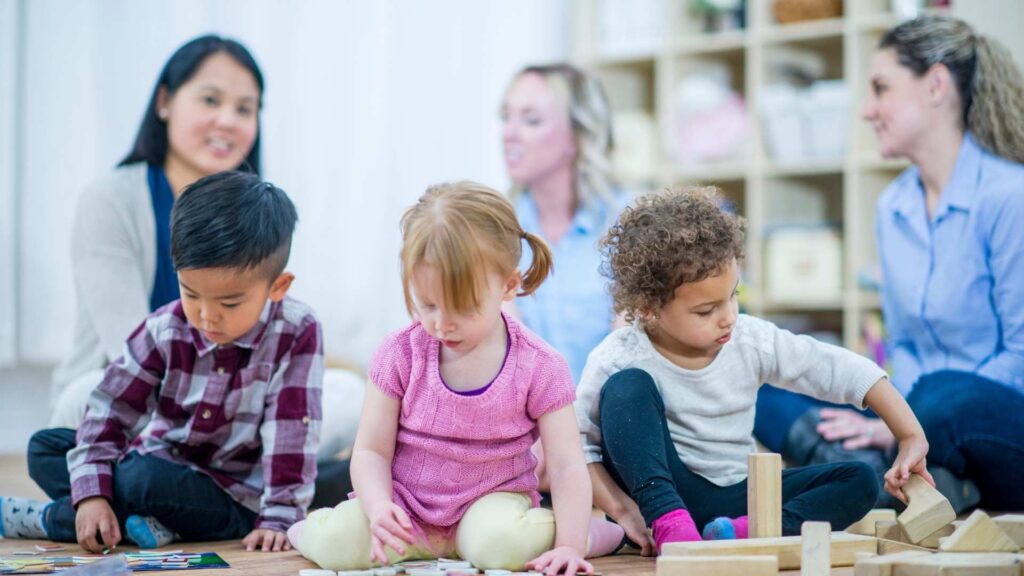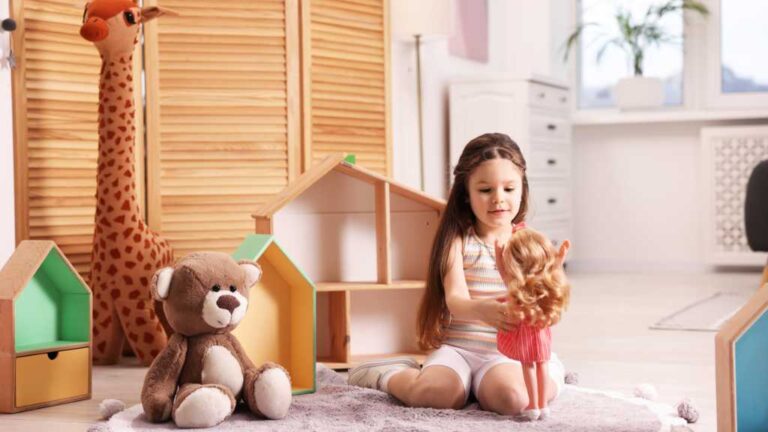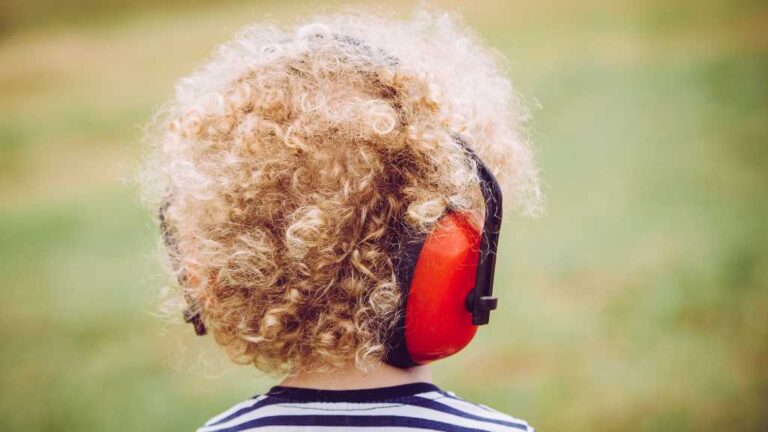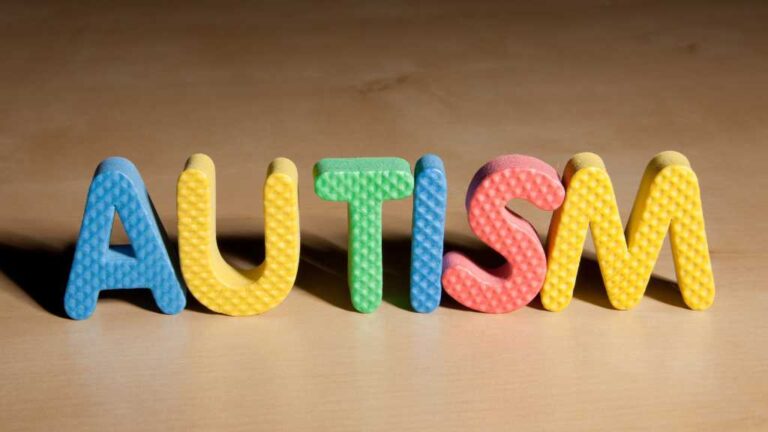Table of Contents
How can we help our child with autism have a successful playdate?
It’s a question many parents and caregivers ask, often with a mix of hope and worry. Playdates are supposed to be fun, but for children with autism, they can sometimes feel like overwhelming social experiments. Instead of simple joy, they may bring stress: What if my child has trouble sharing? What if the other child doesn’t understand their needs? What if it all ends in tears?
Here’s the encouraging truth: playdates don’t have to be stressful or avoided. With thoughtful planning and the right strategies, playdates can become great opportunities for growth that nurture social skills in autism, build confidence, and create beautiful memories. Research consistently shows that structured, supportive play helps children with autism develop communication and adaptability.
This guide by ABA Centers of Georgia offers seven practical tips to make autism and playdates easier. Each idea draws from research, parent experiences, and principles of ABA therapy, with the goal of turning playdates from sources of stress into stepping stones of progress and well-being for every neurodivergent kid.
Autism and Playdates: Why They Can Feel Challenging
For many children, play is natural and instinctive. But for children with autism, play can feel less intuitive and more like a skill that needs guidance. According to a scoping review on this subject, the challenges often include:
- Difficulty understanding the unspoken rules of play.
- Struggles with flexibility when play doesn’t go as expected.
- Sensory sensitivities that make specific settings overwhelming.
- Communication hurdles that create misunderstandings with peers.
Parents often share the same concerns: Will my child be included? Will the other kids be patient? Will this feel like success or a setback? These worries are valid, but they don’t mean playdates are out of reach.
In fact, professionals and parents alike emphasize the benefits of supported play. A recent study on play perceptions notes that structured play helps children with autism build not just social skills in autism, but also confidence, self-expression, and even independence.
Playdates are less about perfect interaction and more about practice, patience, and progress.
Tips for Successful Autism and Playdates
- Start Small and Keep Playdates Short
Please think of the first playdate like dipping your toes into the water: you don’t just dive in first; before that, you take the time to get comfortable. So, instead of scheduling a three-hour afternoon, try 30–45 minutes first. This gradual time planning prevents overwhelm for both children and gives them the chance to leave the experience on a positive note. Over time, length can increase naturally as confidence grows.
- Choose Sensory-Friendly Settings
Children with autism often process the world differently. Loud, crowded, or unpredictable environments can be exhausting. A quiet backyard, a cozy living room, or a familiar playground may set the stage for a calmer experience. By reducing sensory challenges, you help your child focus on the joy of connection, while minimizing meltdowns and making the playdate more rewarding for everyone involved.
- Prepare Your Child with Social Stories and Role-Play
Preparation eases anxiety. Tools from ABA therapy, like social stories and role-play, give children a “sneak peek” of what to expect. You might read a short story about two kids sharing toys or act out a pretend playdate with stuffed animals. Practicing greetings, taking turns, or asking to play can help your child feel more confident when the real moment comes. As some experts found, structured teaching greatly improves engagement for children with autism.
- Select the Right Playmate
Without any doubt, the right friend can make all the difference. Look for children who share interests—like building blocks, drawing, or video games—and who have a natural patience and kindness. A peer who understands your child’s pace creates a safer space for trying new things. Sometimes, one consistent friend is better than a rotating group, as it allows the bond to deepen.
- Use Structured Games and Activities
Open-ended play can feel overwhelming. Instead, you can offer activities with built-in structure: puzzles, crafts, building sets, or board games with simple rules. These games provide a natural framework for practicing turn-taking and communication in neurodiverse kids. Structured play can create safe opportunities for social skills in autism to blossom.
- Communicate with Other Parents and Caregivers
You don’t have to do this alone. Before the playdate, talk with the other parents or caregivers about your child’s needs and strengths. For example: “He loves Legos, but sudden loud noises upset him. A heads-up before switching activities really helps.” This kind of partnership ensures that both children feel supported and understood.
- Celebrate Small Wins and Progress
Did your child wave hello? Offer a toy? Stay engaged longer than before? Each of these moments deserves celebration. Progress in autism often comes in small steps, and every one of them matters. Positive reinforcement—a cornerstone of ABA therapy—turns playdates into confidence-building experiences, reminding children that their efforts are meaningful and valued.
The Role of ABA Therapy in Supporting Playdates
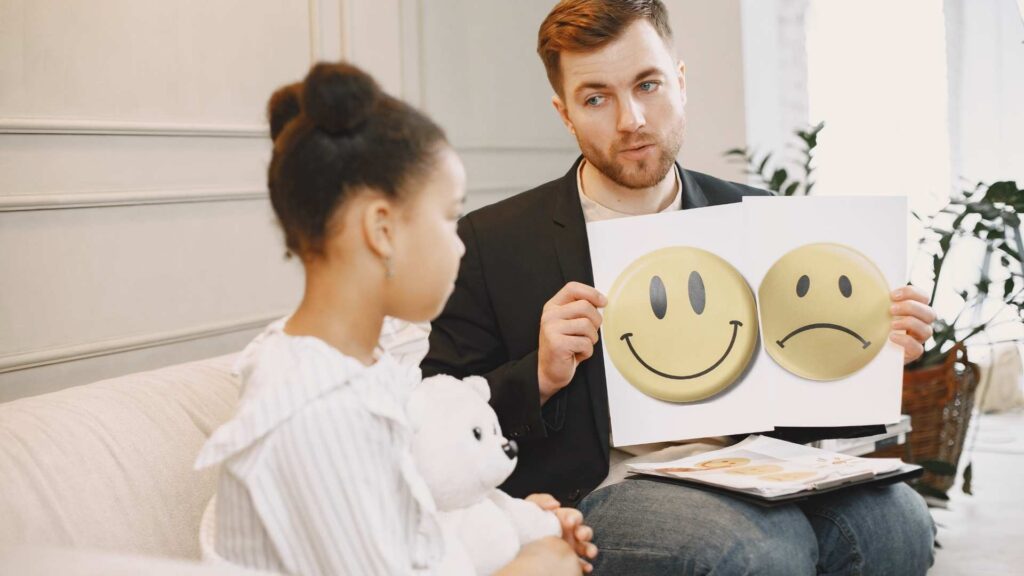
While parents provide love and patience in this journey, ABA therapy offers the roadmap to success. ABA, or Applied Behavior Analysis, is a science-based approach that teaches skills step by step, reinforcing positive behaviors along the way.
Here’s how ABA therapy directly supports playdates:
- Breaking Down Skills: ABA therapists can help children practice small parts of play—like saying hello or waiting for a turn—before combining them into more prolonged interactions.
- Reinforcement Strategies: By rewarding positive behaviors, children are motivated to repeat them.
- Generalization: Skills learned in therapy sessions (like sharing or asking questions) are taught to children to carry over into home and community settings, including playdates.
- Parent Support: Therapists provide guidance on how to prepare for playdates, set expectations, and celebrate progress afterward.
Early intervention with ABA therapy has been shown to significantly improve social skills in autism, communication, and adaptability. For many families with children on the spectrum, ABA Therapy becomes the bridge between sessions and everyday life, helping children not just “practice” social skills, but truly live them.
A Parent’s Perspective
Picture this: your child has struggled with playdates in the past. They often withdrew, or the interactions ended quickly. After working with an ABA therapist, you try again—this time with preparation, a short time frame, and a familiar activity. Your child greets their playmate, plays a board game for ten minutes, and waves goodbye.
It may not sound monumental to some, but to you, it feels like the start of something beautiful. That’s the essence of playdates for children with autism: not perfection, but progress.
Autism and Playdates: One step at a time
Playdates can be a challenge and an opportunity, all at the same time. With the right mindset, preparation, and support, they become more than play—they become pathways for growth, connection, and joy.
By starting small, choosing sensory-friendly environments, practicing through social stories, and leaning on the principles of ABA therapy, parents and caregivers can transform playdates into safe spaces for developing confidence and social skills for children with autism. More About Social Skill Development at our ABA Centers.
At ABA Centers of Georgia, we recognize the importance of positive moments and experiences, such as healthy playdates, for children with ASD and their families. These experiences often contribute to better relationship outcomes and other benefits throughout their lives.
Our dedicated team is here to support every family we work with, assisting with diagnostic evaluations, early intervention, and providing ongoing therapy at every step of the journey.
If you’re ready to make playdates and everyday social events more rewarding, we invite you to contact ABA Centers of Georgia today and schedule a free consultation. You can also call us at (855) 929-5058.
Alongside our top-tier ABA professionals, we can all help build a brighter, happier future for children on the spectrum, so they can truly shine.

